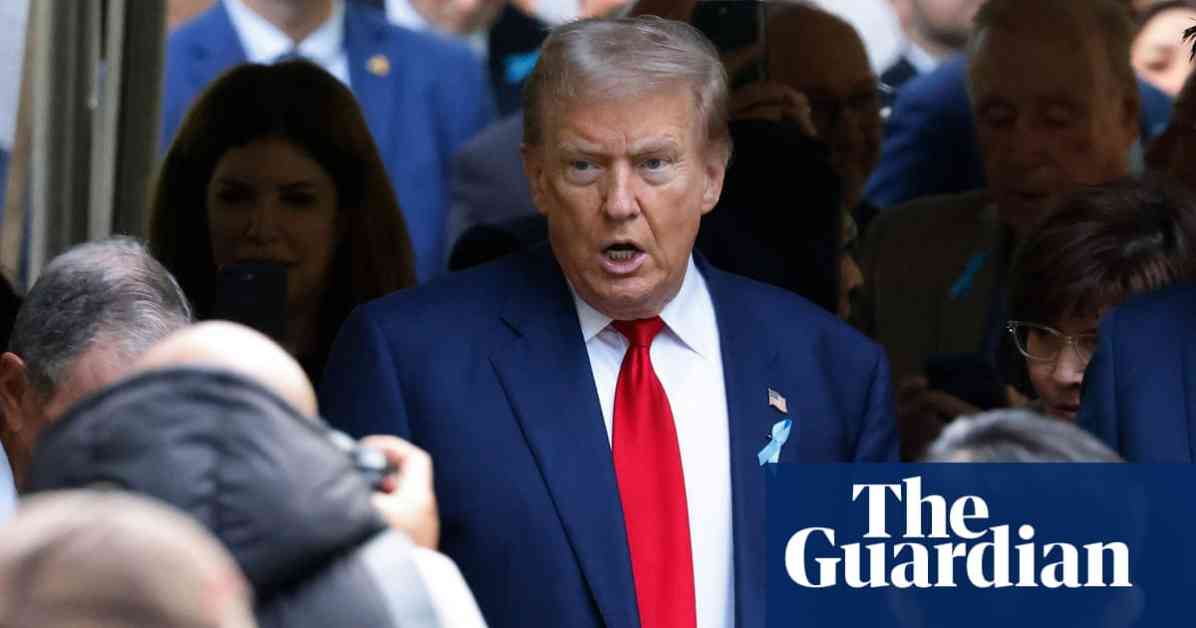Donald Trump had two counts tossed from his criminal case in Georgia over his efforts to overturn the 2020 election, after the presiding judge decided on Thursday they fell under the supremacy clause in the US constitution that bars state prosecutors from charging federal crimes.
Supremacy Clause Ruling
“The Supremacy Clause declares that state law must yield to federal law when the two conflict,” the Fulton county superior court judge Scott McAfee wrote in his order. The judge decided that two charges against Trump and an additional count against several Trump allies, who were charged as co-defendants, should be struck. But he decided the remainder of the indictment – including the Rico racketeering charge – could remain.
Trump now faces eight charges, down from 13 charges. Trump pleaded not guilty to the sprawling 2020 election interference case in Fulton county last year along with 18 other co-defendants. Four have since taken plea deals and agreed to testify against the other defendants.
Dismissed Charges
The charges that were dismissed against Trump – the filing of false documents and conspiring to file false documents – related to the Trump campaign’s gambit to submit fake elector certificates declaring Trump as the winner even though he had lost. The fake elector certificates were then sent to the National Archives ahead of the congressional certification of Joe Biden’s election win on 6 January 2021, which the Fulton county district attorney Fani Willis charged as criminal forgery counts.
Trump’s Legal Victory
“President Trump and his legal team in Georgia have prevailed once again. The trial court has decided that counts 15 and 27 in the indictment must be quashed/dismissed,” Trump’s lead lawyer, Steve Sadow, said in a statement.
The 22-page order issued by McAfee comes as the fate of the case hangs in the balance ahead of the Georgia appeals court deciding whether Willis can continue with the case, following her alleged relationship with her deputy, Nathan Wade.
Conflict of Interest Allegations
McAfee declined to remove Willis from the case as long as Wade resigned to resolve the conflict of interest allegation, a decision that Trump’s lawyers have appealed. Trump’s attorneys continue to argue that Willis has a conflict of interest, but also argued that she should have been disqualified for comments she made about the case at a speech at Big Bethel AME church in downtown Atlanta. In the wake of revelations about her relationship with Wade, Willis attributed the legal attack to racist motivations.
John Eastman and Shawn Still’s Motion
Separately on Thursday, McAfee rejected a motion from the former Trump lawyer John Eastman and Trump fake elector Shawn Still to toss the entire indictment on grounds that it relied on an overly broad interpretation of the Georgia state racketeering statute.
Moving Forward
With the dismissal of two charges against Donald Trump in the Georgia election case, the legal battle continues to unfold as the remaining charges are contested in court. The decision by Judge McAfee to dismiss the counts based on the supremacy clause has sparked debate and further legal maneuvers from both sides.
Legal Ramifications
The ruling by Judge McAfee regarding the supremacy clause and its impact on the charges against Trump sets a significant precedent in the legal landscape. The decision to dismiss the counts related to false documents and conspiracy could have far-reaching implications for future cases involving similar circumstances.
Legal experts have weighed in on the implications of the ruling, with some expressing concerns about the limitations it may place on state prosecutors in pursuing charges against individuals for federal crimes. The interpretation of the supremacy clause in this case could shape the way similar cases are handled in the future, creating a new legal standard for prosecuting such offenses.
Political Fallout
The ongoing legal battle surrounding Donald Trump’s alleged efforts to overturn the 2020 election has not only legal ramifications but also political implications. The dismissal of two charges against Trump could impact public perception of the case and the individuals involved.
Political analysts have been closely monitoring the developments in the Georgia election case, as it continues to draw attention from both supporters and critics of Donald Trump. The outcome of the legal proceedings could influence future political decisions and the public’s view of the former president’s actions leading up to and following the 2020 election.
Public Response
The dismissal of two charges against Donald Trump in the Georgia election case has elicited a range of responses from the public. Supporters of the former president have hailed the decision as a victory for Trump and his legal team, while critics have raised concerns about the implications of the ruling.
Social media has been abuzz with reactions to the latest developments in the case, with users sharing their opinions on the legal proceedings and the potential impact on future elections. The public response to the dismissal of the charges reflects the polarized nature of American politics and the ongoing debate over the integrity of the electoral process.
As the legal battle continues to unfold in the Georgia election case, the outcome remains uncertain. The dismissal of two charges against Donald Trump has reshaped the landscape of the case, raising questions about the interpretation of the supremacy clause and its implications for future cases. With the remaining charges still in contention, the legal drama is far from over, and the political fallout from the case is likely to reverberate for some time to come.












